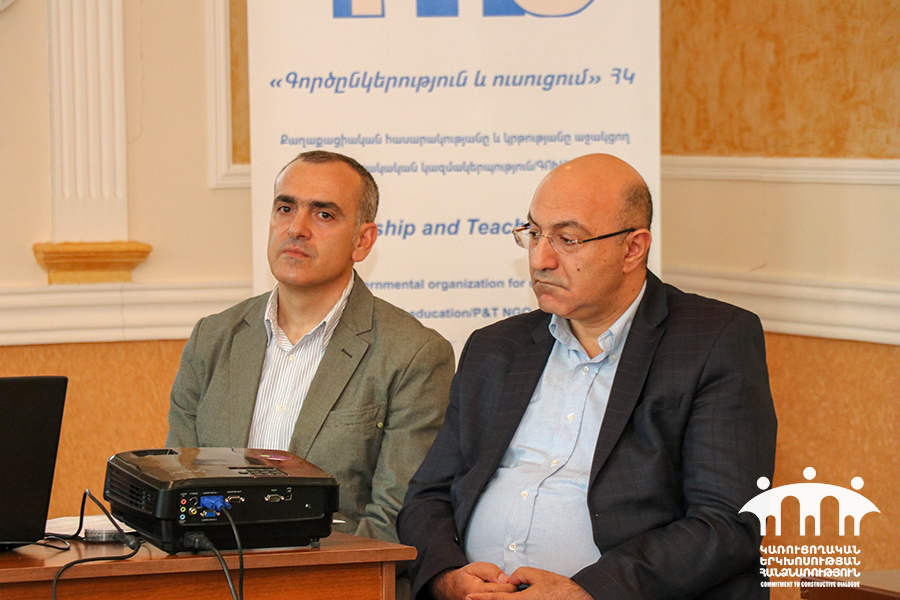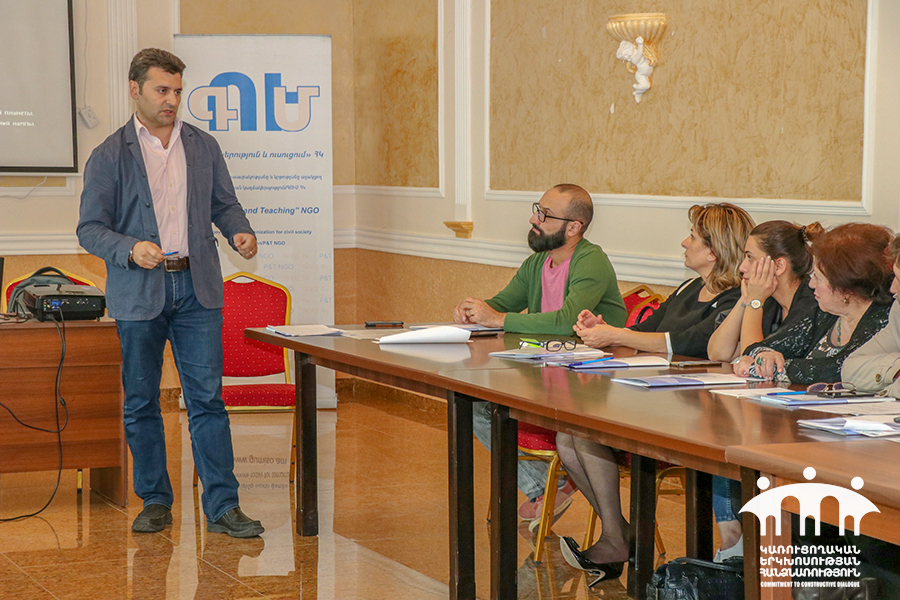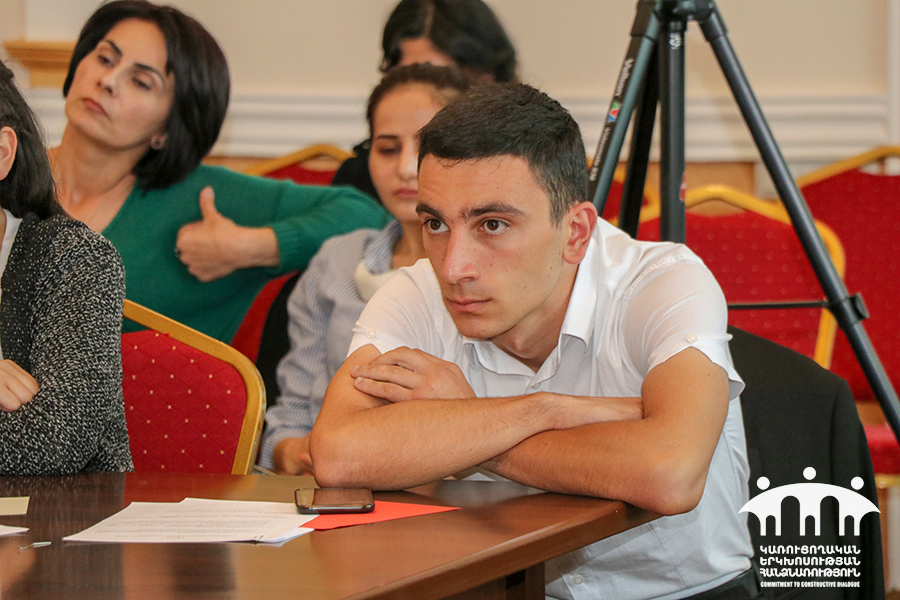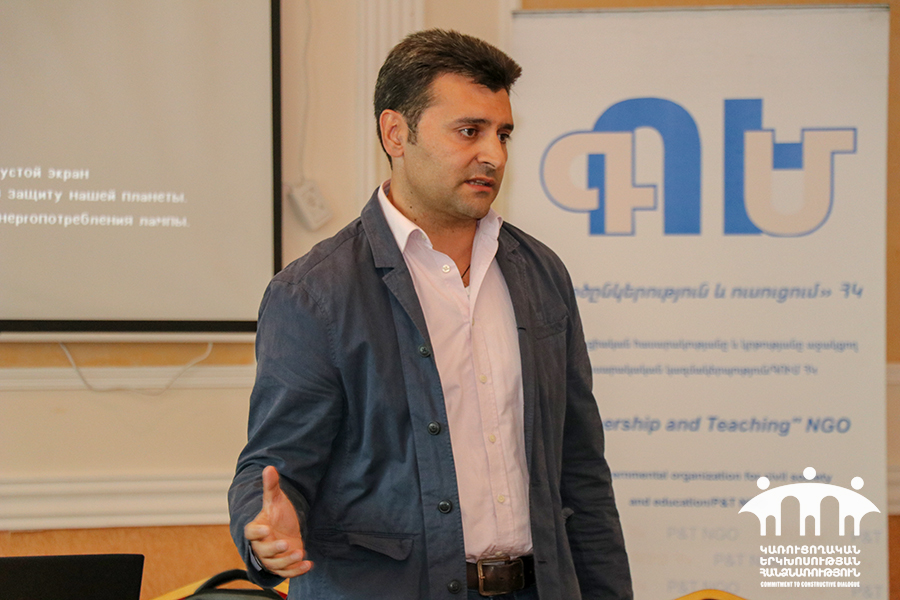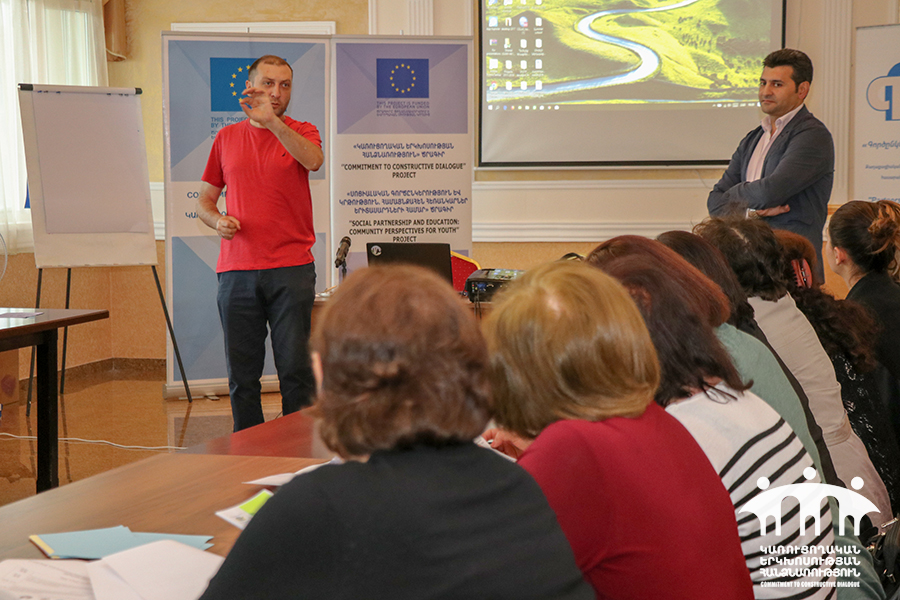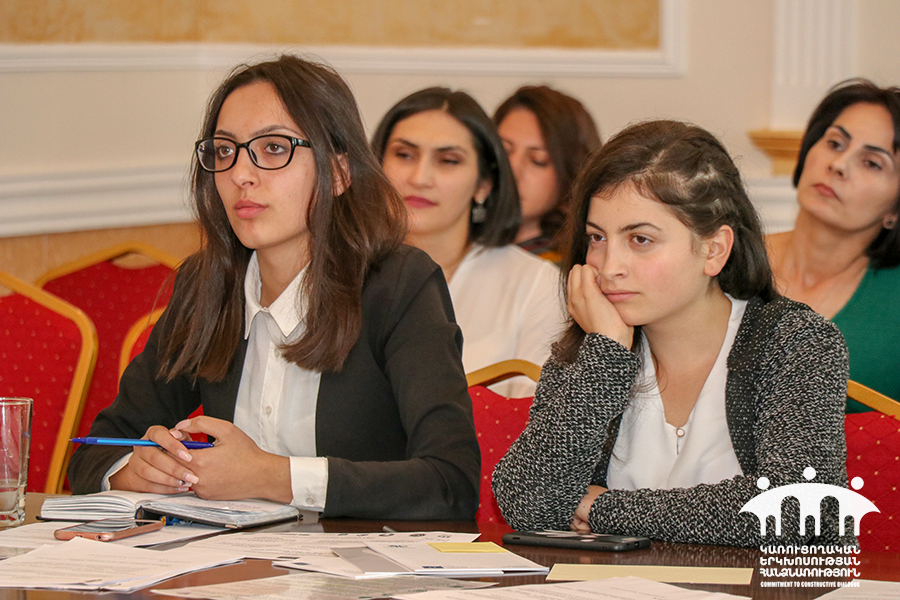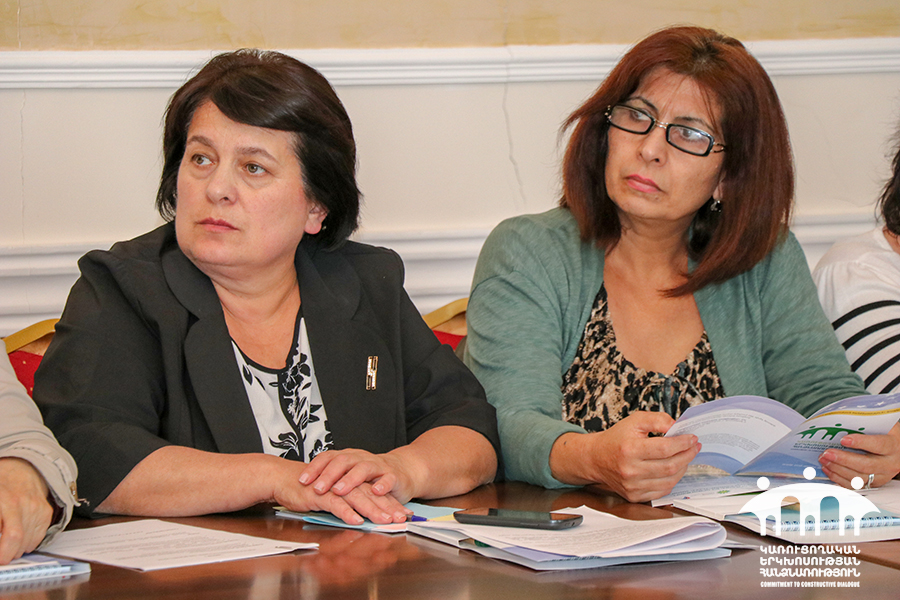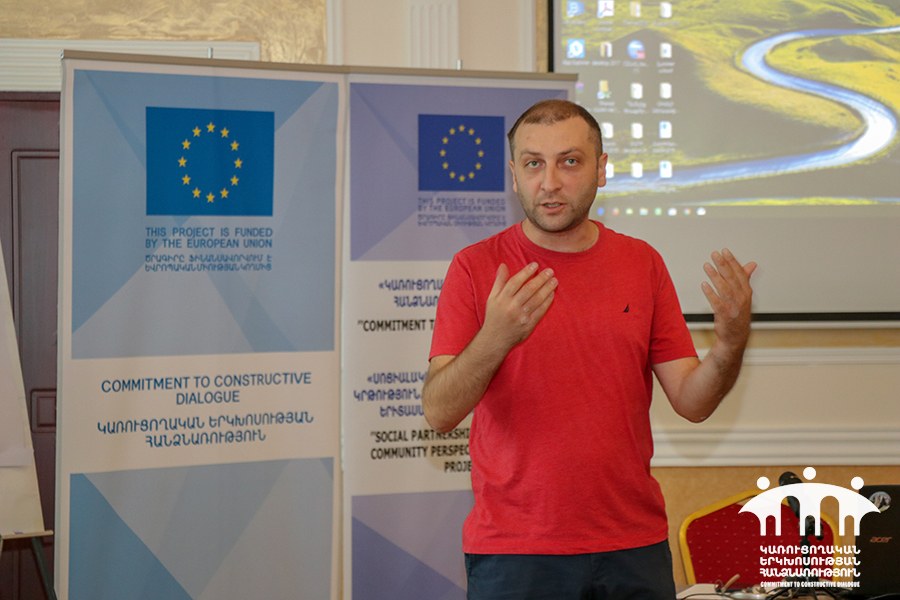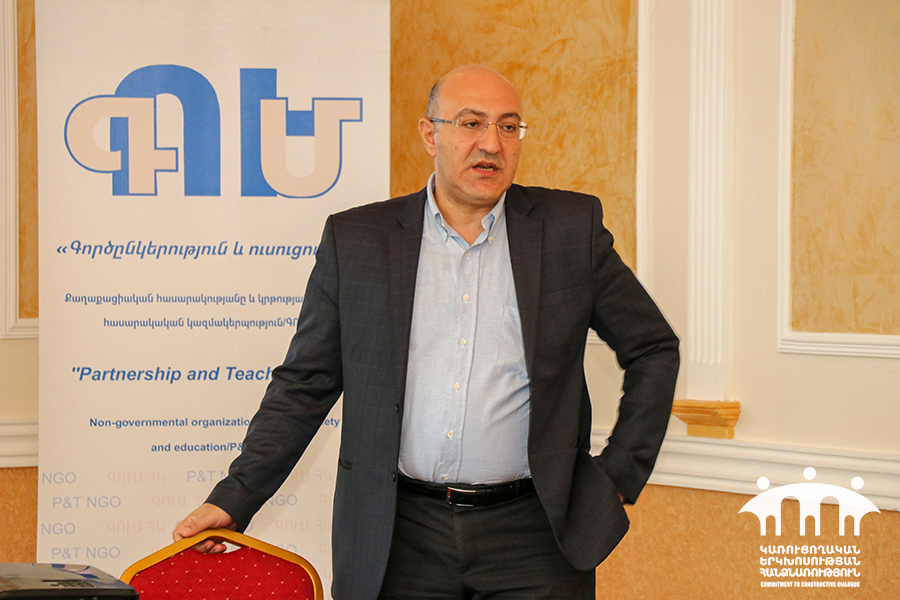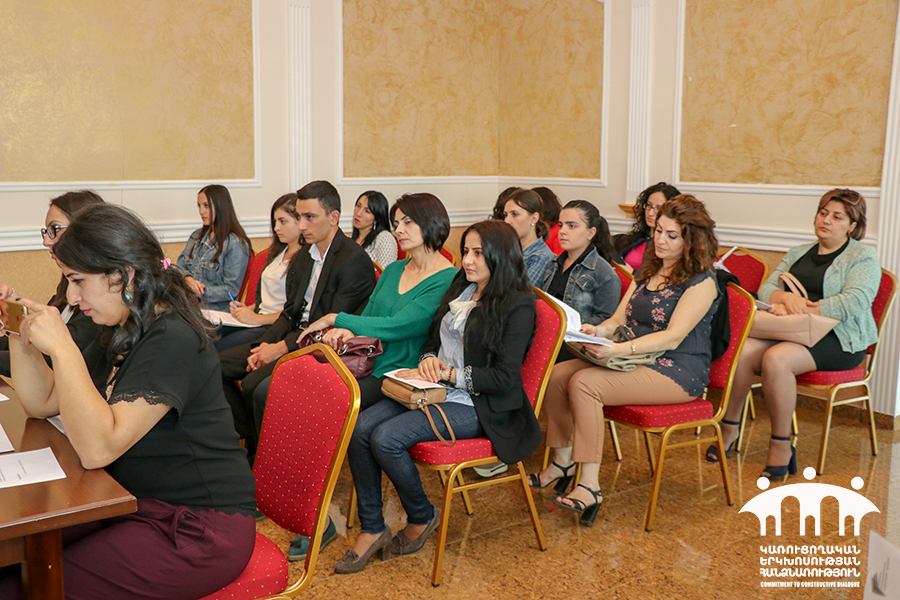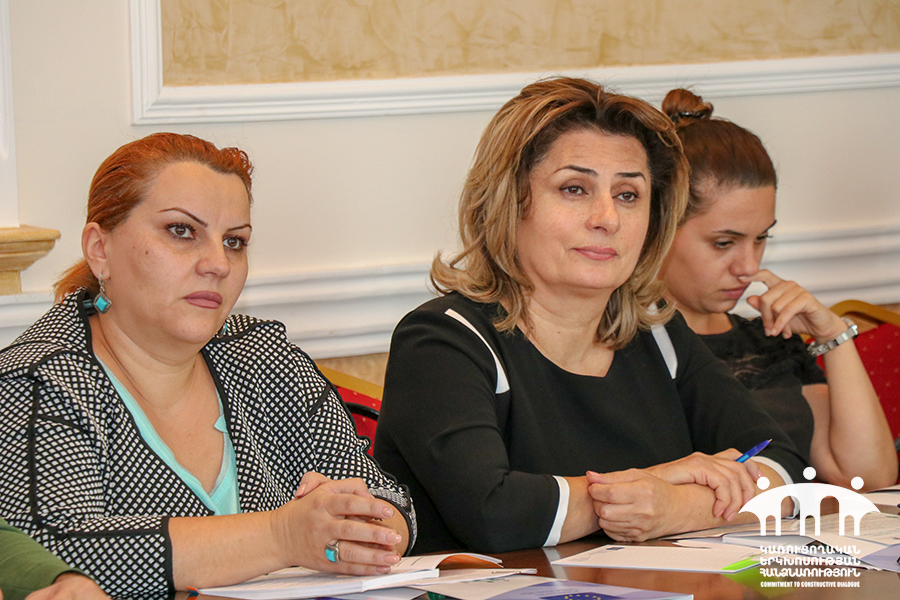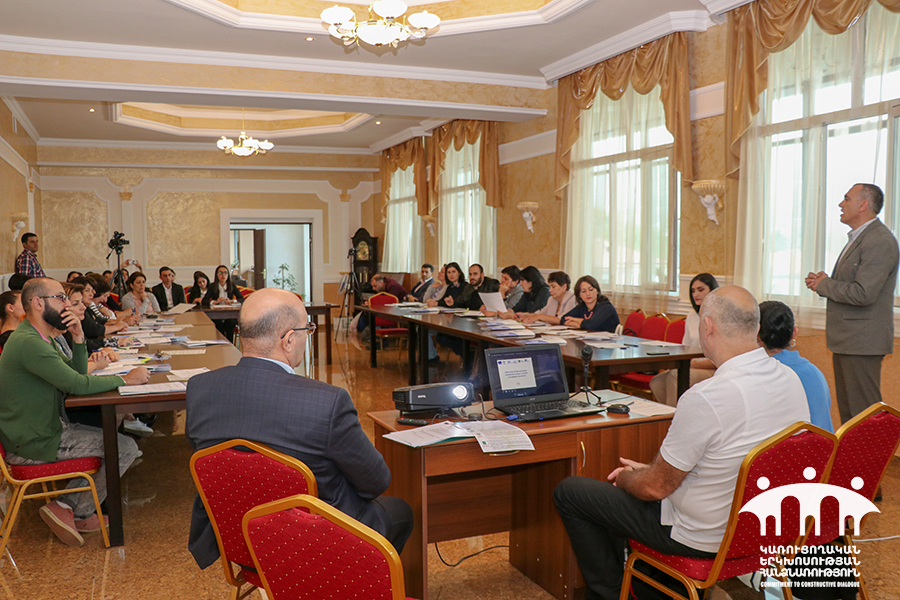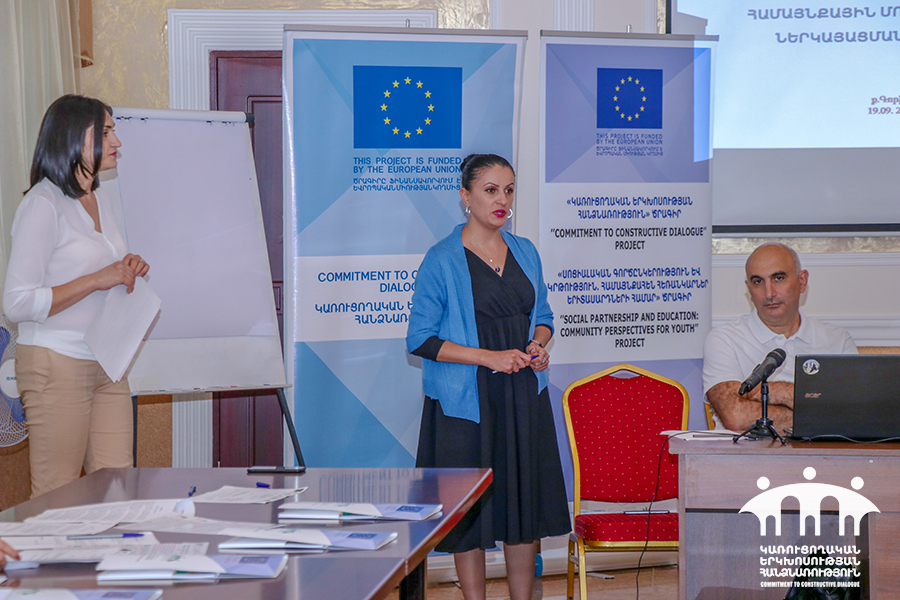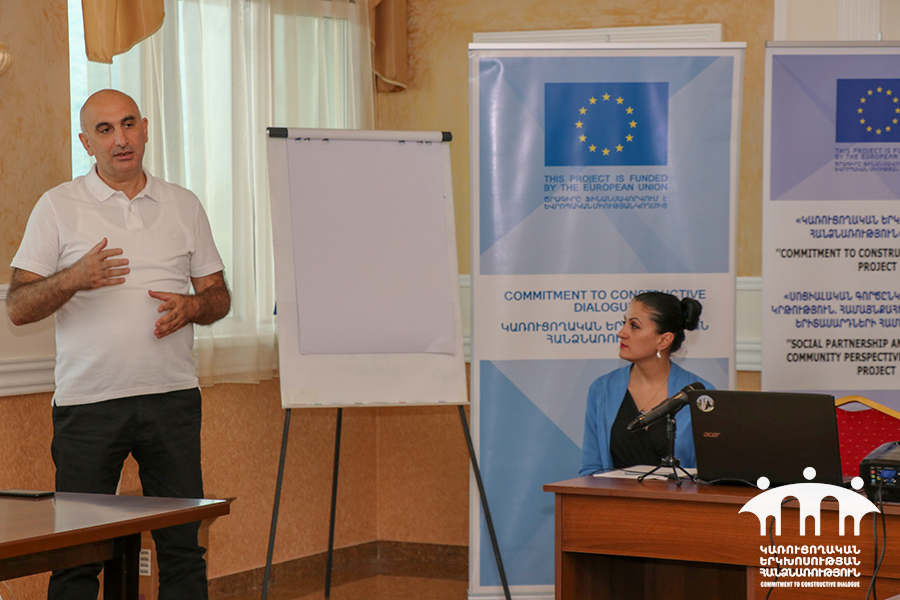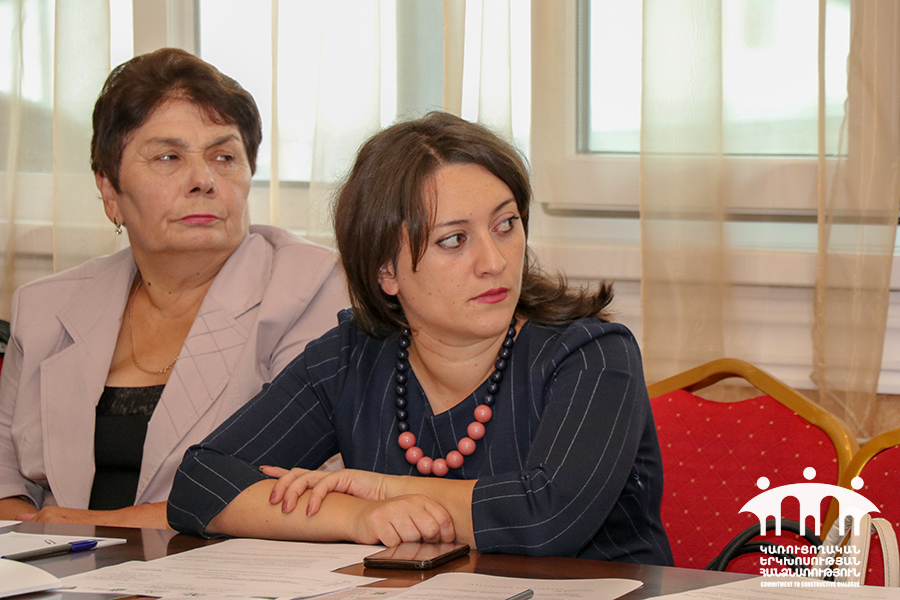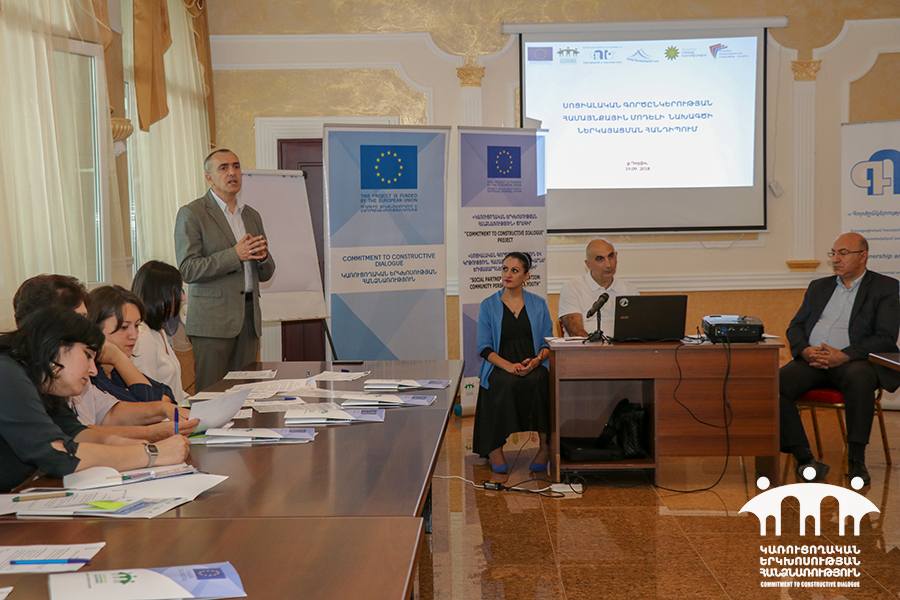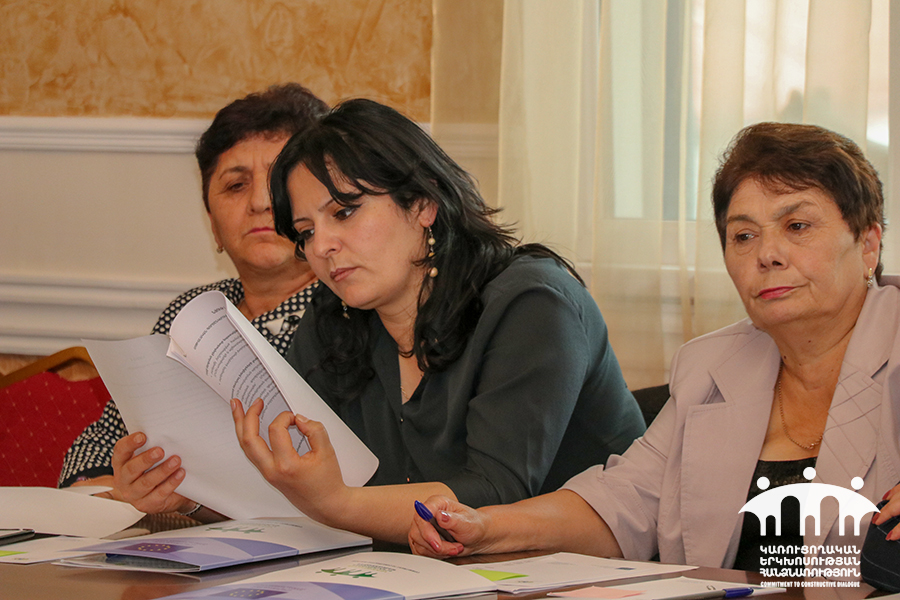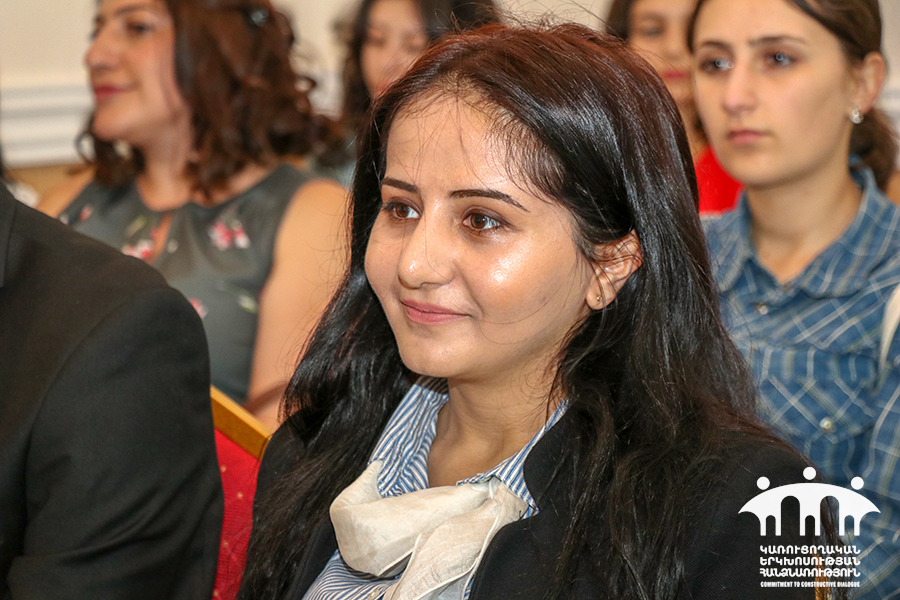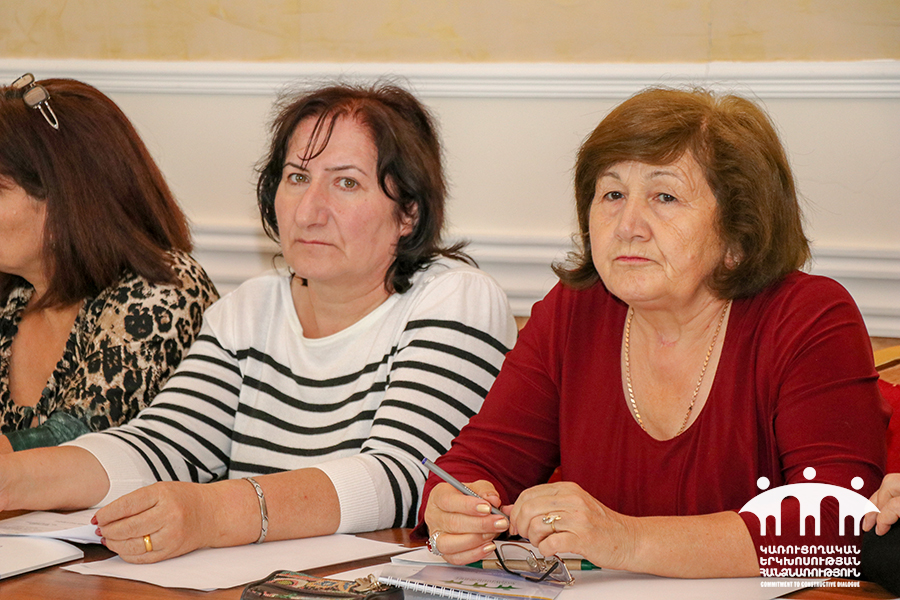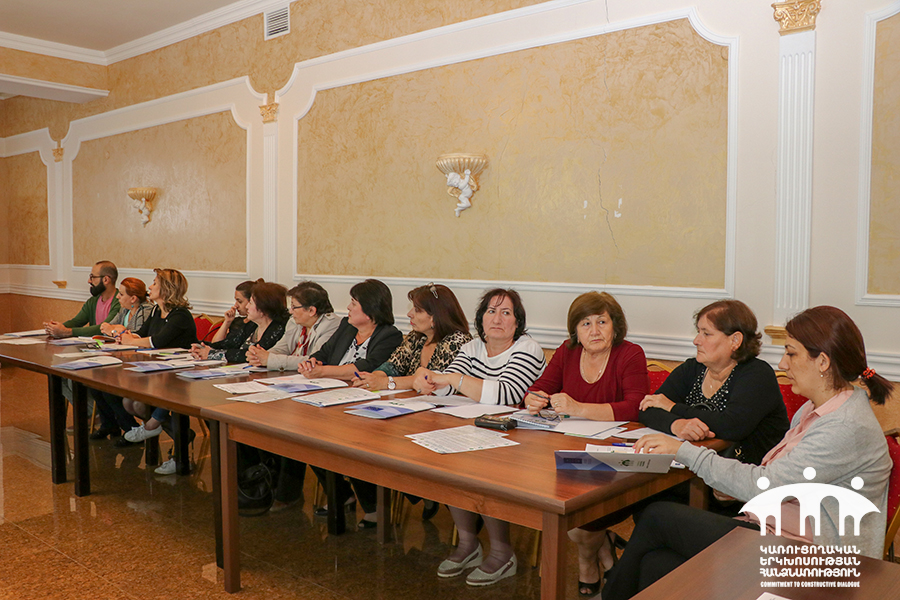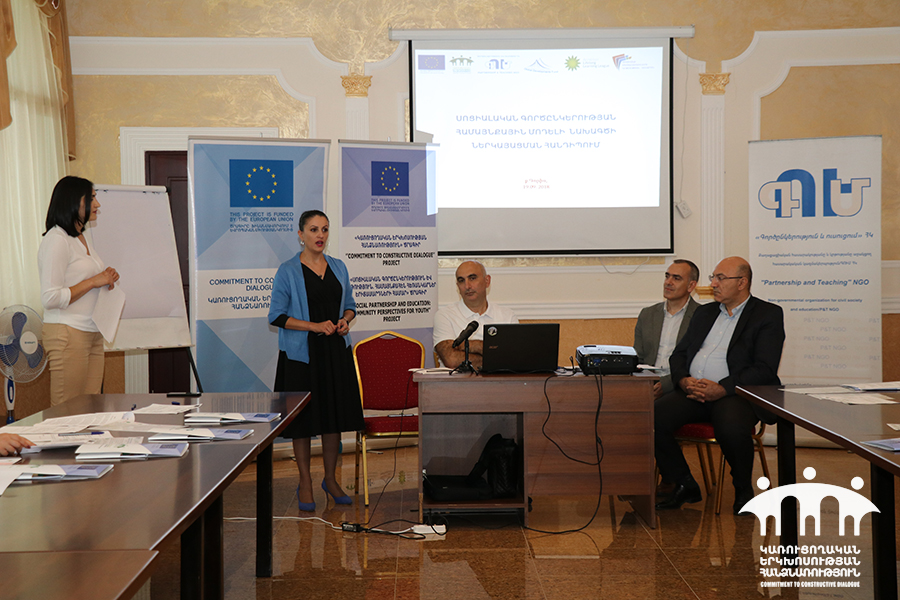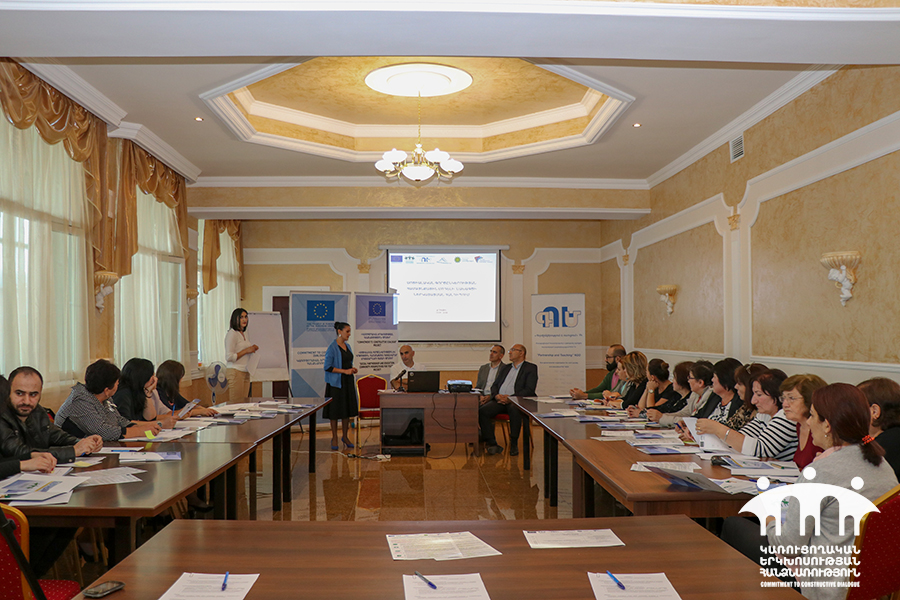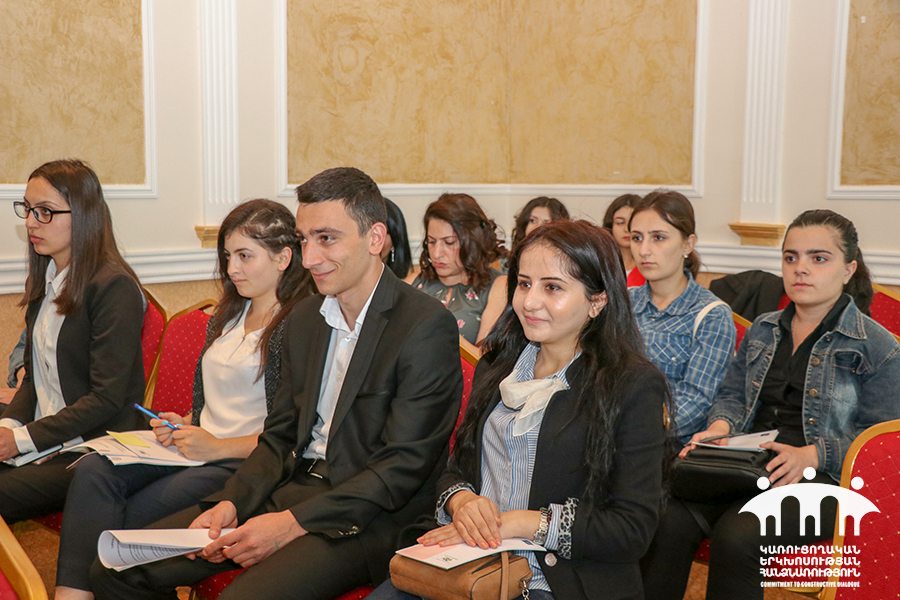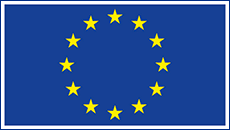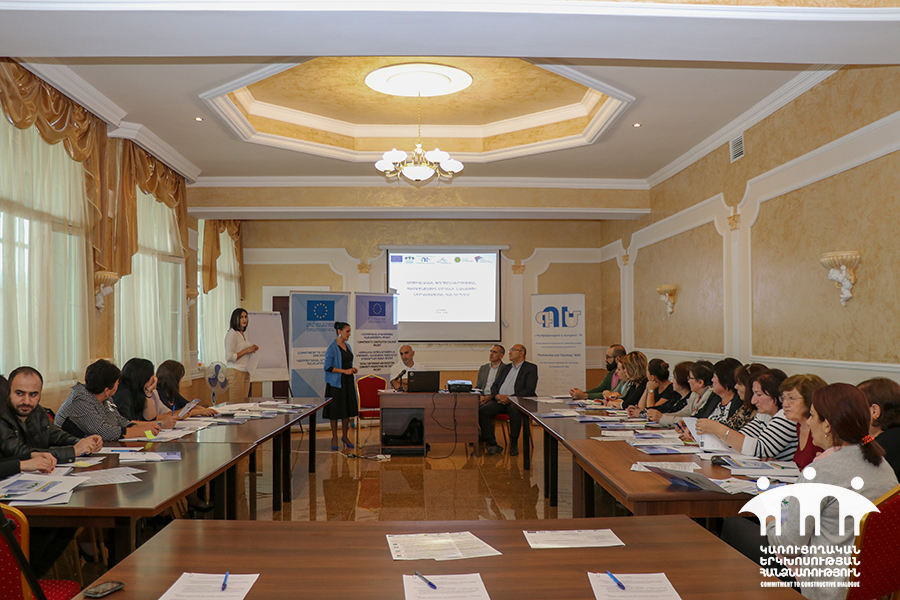
On 19 September 2018, a meeting-discussion for the presentation of the “Social Partnership and Education: Community Opportunities for Young People” sub-grant project funded by the European Union took place in Goris, in addition to the presentation of issues related to circulation of educational programmes and vacancy announcements of the Syunik marz vocational education and training (VET) institutions and ensuring their outreach to the target audience.
Deputy Head of the Goris Community Irina Yolyan was also present at the meeting. She found the project commendable, noting that one of the most important questions in the agenda was the issue of unemployment: “We hope that this project will become the efficient toolset which will enable us to somehow mitigate the problem in our community. I am familiar with the model since the initial stage of the project was presented at the Goris Community Administration. The employer very often searches for an employee while the latter is not able to find a job. I am certain that this toolset will truly help in this matter in terms of noticing efficiency and the model becoming an exemplary format in the marz, and, why not, making it applicable in the territory of the republic,” she said.
Karen Zadoyan, the “Commitment to Constructive Dialogue” Project Manager and the President of the Armenian Lawyers’ Association, presented the project, noting that it was a 34-month project that had been launched on 15 December 2016. “The main goal is to strengthen the capacities of civil society organisations, as follows: development of evidence-based public policies, implementation of public monitoring, building and strengthening CSO networks, as well as building sustainable and constructive dialogue with the government and local government,” said Karen Zadoyan.
Speaking about the event, he noted the great importance of the problems of vocational education and training in Armenia as there had been a great gap in the period between the Soviet Union and independence, there is some disruption between the job market and vocational education.
Artashes Torozyan, who is the “Social Partnership and Education: Community-Based Opportunities for Young People” Project Manager, noted that the model is operated in the scope of cooperation with the community administration. “One of the important accents of the project is increasing the role of NGOs in the area of public policy changes. When we were launching the model, its main problem was the weak connection between the VET area and the job market, as well as the advisory system gaps linked to professional orientation which exist today in public schools. The implementation of our consortium project is targeting these two global issues,” said Artashes Torozyan.
The problems related to circulation of the educational programmes and vacancy announcements at the VET institutions of the Syunik marz and making them reach the target audience were presented by Khachik Gevorgyan, the Executive Director of the “Armenian Center for Democratic Education-CIVITAS” NGO, and education expert Vigen Shirvanyan.
“Please imagine a student who wants to get admitted to a college. Where can he/she find information on all the possible educational courses of that college? I cannot get familiar with them as a student or as a parent. There are colleges now that have no data, websites or courses presented while some have. All of this must be aligned now and everybody must present their educational programmes. Colleges have to come up with announcements on all their courses, and there is a clear order and form for them,” Mr. Gevorgyan said. He presented the peculiarities of, for example, spreading announcements on Facebook or the official college website, involving students or employees, etc.
In Viden Shirvanyan’s words, VET programmes are created by the institutions themselves but there are criteria which restrain them to a certain extent. “There is an important issue now: These criteria are mandatory to be reviewed. In addition, there is no mechanism designed for putting educational courses into circulation. The student who wants to study somewhere, has two options of getting that information, to go and get the printed textbook version from specific people or go to websites of educational institutions. The same goes for job announcements,” he said.
The “Commitment to Constructive Dialogue” project is implemented with the financial support of the European Union by a consortium of civil society organizations, which are the “Armenian Lawyers’ Association” NGO, Agora Central Europe o.p.s (an NGO from the Czech Republic), the “Armenian Center for Democratic Education-CIVITAS” NGO, the “International Center for Human Development” Public Organization, the “SME Cooperation Association” NGO and the Union of Communities of Armenia.


